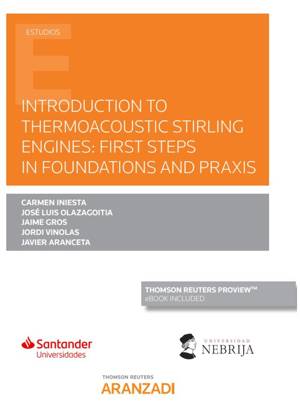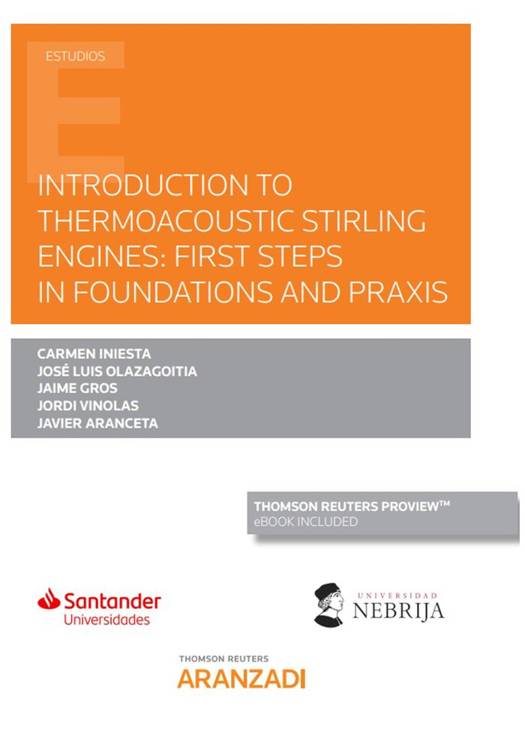
- Afhalen na 1 uur in een winkel met voorraad
- Gratis thuislevering in België vanaf € 30
- Ruim aanbod met 7 miljoen producten
- Afhalen na 1 uur in een winkel met voorraad
- Gratis thuislevering in België vanaf € 30
- Ruim aanbod met 7 miljoen producten
Zoeken
Introduction to thermoacoustic Stirling engines: First steps in Foundations and Praxis (Papel + e-bo
Ignacio Borrajo Iniesta, Carmen Iniesta Barberá
Boek | Spaans
€ 23,45
+ 46 punten
Omschrijving
The energy transition implemented at a global level implies restrictions and regulations that greatly affect the transport sector. The International Energy Agency estimates that 23% of greenhouse gas emissions come from this sector. The vehicles used today, whether combustion or hybrid, are machines that have great inherent inefficiencies during their operation. It is estimated that in vehicles with internal combustion engines, approximately 20% of the chemical energy stored in the fuel tank is converted into useful work that is invested in the operation of the vehicle itself. The remaining energy is lost in several of their systems by mechanical dissipation and most of it, a third, by heat dissipation through the exhaust system. In an attempt to recover "wasted" thermal energy, different technologies have been developed in the field of "Waste Heat Recovery" and "Energy harvesting", which try to make it useful to increase the overall efficiency of a vehicle. Against this background, the book focuses on the theoretical and experimental study of Stirling Thermoacoustic Stirling-Like Cycle Engine (TA-SLiCE). It begins with a comprehensive study of the state of the art on TA-SLiCE, classifying each of the technologies presented in the literature according to the electrical power provided. One of the main goals of this book is the praxis from the first steps, so the reader is guided in the design and manufacture of a compact Stirling thermoacoustic energy recovery engine, operating in laboratory conditions. In addition, the device itself is an academic tool for knowledge transfer. The second main objective of this publication is the application of a methodology for energy analysis and optimization of thermo-acoustic devices, which does not exist so far in the specialized literature. This new perspective, which avoids complicated mathematical treatments, facilitates access to this fascinating technology for all audiences. The presented methodology is based on the distribution of the active and reactive acoustic power flow according to the passive acoustic circuit. In addition, this approach allows optimizing the TA-SLiCE by comparing different acoustic circuits. This method is evaluated at a theoretical level with the models and simulations developed and later validated with its evaluation at an experimental level, carrying out tests in the manufactured TA-SLiCE demonstrator, for each of the case studies described.
Specificaties
Betrokkenen
- Auteur(s):
- Uitgeverij:
Inhoud
- Aantal bladzijden:
- 176
- Taal:
- Spaans
Eigenschappen
- Productcode (EAN):
- 9788413452630
- Verschijningsdatum:
- 1/12/2020
- Uitvoering:
- Boek
- Afmetingen:
- 165 mm x 235 mm
- Gewicht:
- 266 g

Alleen bij Standaard Boekhandel
+ 46 punten op je klantenkaart van Standaard Boekhandel
Beoordelingen
We publiceren alleen reviews die voldoen aan de voorwaarden voor reviews. Bekijk onze voorwaarden voor reviews.











